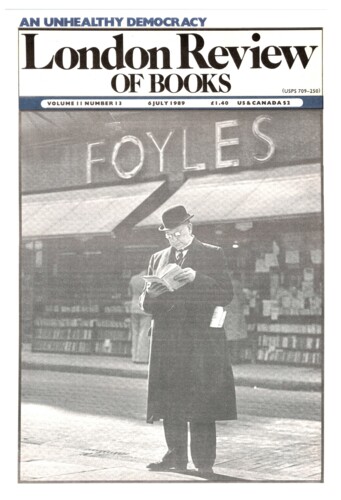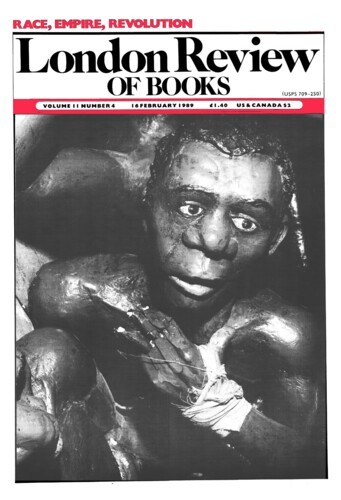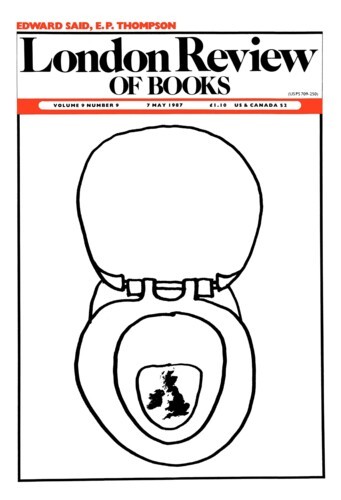Doing the bores
Rosemary Ashton, 21 March 1991
There will be many more years –and many more volumes – before the Carlyles’ Collected Letters are brought to completion. Twenty-two more years of Jane Carlyle’s long, witty, sharp, self-dramatising yet oddly attractive litanies about the obstinacy of servants, her husband’s indifference to her, and the annoyances of her lot as a ‘Lion’s wife’ obliged to ‘do the bores’ who come to view the lion himself. And 36 years still to come of Carlyle’s groaning but stoical descriptions of his work in progress, his rhetorical assassinations of politicians of all parties and clergymen of all persuasions, and his surprisingly tender and encouraging letters to members of his family, to aspiring young authors and to the few people – Ralph Waldo Emerson, for instance – whom he loves or admires. It is a daunting thought, particularly as no one seems ever to have thrown away a letter from Thomas or Jane: the libraries of the world are stuffed with them.’





